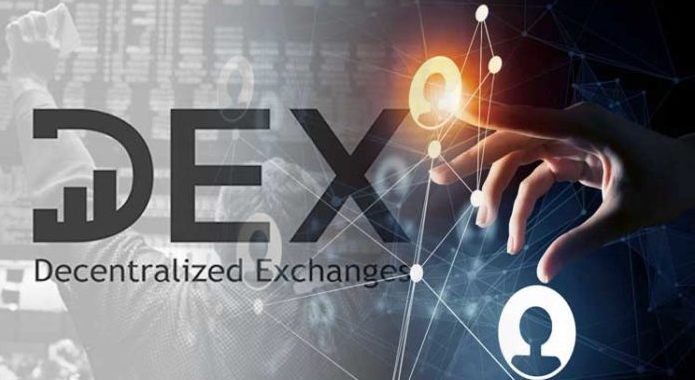As the world becomes more digitized, the need for a secure and decentralized way of trading cryptocurrencies has become increasingly important. Decentralized exchanges (DEXs) have emerged as a solution to this problem, providing users with a trustless platform that allows them to trade cryptocurrencies without the need for intermediaries.
What is a Decentralized Exchange?
A decentralized exchange is a platform that allows users to trade cryptocurrencies without the need for intermediaries or central authorities. DEXs operate on a peer-to-peer network, where users can connect directly to each other to buy and sell cryptocurrencies. DEXs are powered by smart contracts, which facilitate the execution of trades in a trustless and transparent manner. Decentralized exchanges offer several advantages over traditional centralized exchanges, including increased security, transparency, and trustlessness.
Benefits of Decentralized Exchanges
DEXs are more secure than centralized exchanges because they eliminate the need for a central point of control.
- This reduces the risk of hacking and theft, as well as the potential for insider trading.
- DEXs offer greater transparency in transactions because all trades are recorded on the blockchain, which is an immutable public ledger.
- This makes it easier for users to verify the authenticity of transactions and reduces the potential for fraud.
- DEXs are trustless, meaning that users do not need to trust a third-party intermediary to execute trades.
- This makes DEXs more democratic and inclusive, as they allow users to take control of their finances without the need for intermediaries.
- DEXs provide a more secure, transparent, and democratic platform for cryptocurrency trading.
Challenges of Decentralized Exchange Development
Developing a decentralized exchange is technically difficult and requires expertise in writing smart contracts, developing a user-friendly frontend, and ensuring security and user-friendliness.
- DEXs face challenges in terms of user adoption and building a user base.
- Since DEXs operate on a peer-to-peer network, they rely on users to provide liquidity for trading.
- This can be a challenge, particularly for new DEXs that are trying to build a user base.
- DEXs also face challenges in terms of scalability, as the network must be able to handle a large number of users and transactions.
- Developing a DEX requires significant technical expertise and faces challenges in terms of user adoption, liquidity, and scalability.
The Future of Decentralized Exchanges
The future of decentralized exchanges is bright. As the cryptocurrency market continues to grow, DEXs are likely to become more popular. Decentralized exchanges have the potential to revolutionize the way we trade cryptocurrencies, making it easier, more secure, and more transparent. They also have the potential to promote the adoption of cryptocurrencies and the growth of the crypto economy. As the technology powering DEXs continues to improve, we are likely to see more advanced and user-friendly platforms emerge in the future.
Examples of Decentralized Exchanges
- Uniswap is one of the most popular decentralized exchanges, operating on the Ethereum blockchain. Uniswap allows users to trade tokens without the need for an order book, using an automated market maker system.
- PancakeSwap is another popular DEX, operating on the Binance Smart Chain and allowing users to trade BEP-20 tokens. PancakeSwap also features yield farming and staking opportunities for users.
- Sushiswap is a popular DEX that operates on the Ethereum blockchain and offers rewards for users who provide liquidity to the platform. Sushiswap also offers yield farming and staking opportunities for users.
- Other examples of DEXs include Curve, Balancer, and 1inch.
- There are many examples of decentralized exchanges in the market, each with their own unique features and benefits.
Conclusion
Decentralized exchange development represents a significant advancement in the field of cryptocurrency trading. The advantages of DEXs over centralized exchanges make them an essential part of the cryptocurrency ecosystem. While there are challenges associated with developing a DEX, the potential benefits are too great to ignore. As the crypto market continues to grow, we are likely to see more advanced and user-friendly DEXs emerge in the future, revolutionizing the way we trade cryptocurrencies and promoting the adoption of blockchain technology.


